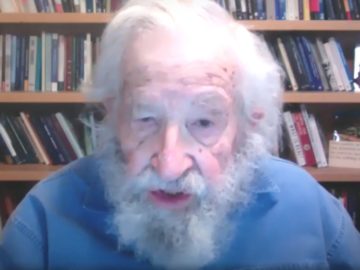Tyler Cowen at Conversations with Tyler:
COWEN: If I think of your thought, and I compare it to the thought of Wilhelm von Humboldt, what’s the common ontological element in both of your thoughts that leads you to more or less agree on both language and liberty?
 CHOMSKY: Von Humboldt was, first of all, a great linguist who recognized some fundamental principles of language which were rare at the time and are only beginning to be understood. But in the social and political domain, he was not only the founder of the modern research university, but also one of the founders of classical liberalism.
CHOMSKY: Von Humboldt was, first of all, a great linguist who recognized some fundamental principles of language which were rare at the time and are only beginning to be understood. But in the social and political domain, he was not only the founder of the modern research university, but also one of the founders of classical liberalism.
His fundamental principle — as he said, it’s actually an epigram for John Stuart Mill’s On Liberty — is that the fundamental right of every person is to be free from external illegitimate constraints, free to inquire, to create, to pursue their own interests and concerns without arbitrary authority of any sort restricting or limiting them.
COWEN: Now, you’ve argued that Humboldt was a Platonist of some kind, that he viewed learning as some notion of reminiscence. Are you, in the same regard, also a Platonist?
CHOMSKY: Leibniz pointed out that Plato’s theory of reminiscence was basically correct, but it had to be purged of the error of reminiscence — in other words, not an earlier life, but rather something intrinsic to our nature. Leibniz couldn’t have proceeded as we can today, but now we would say something that has evolved and has become intrinsic to our nature. For people like Humboldt, what was crucial to our nature was what is sometimes called the instinct for freedom. Basic, fundamental human property should lie at the basis of our social and economic reasoning.
It’s also the critical property of human language and thought, as was recognized in the early Scientific Revolution — Galileo, Leibniz — a little later, people like Humboldt in the Romantic era.
More here.
